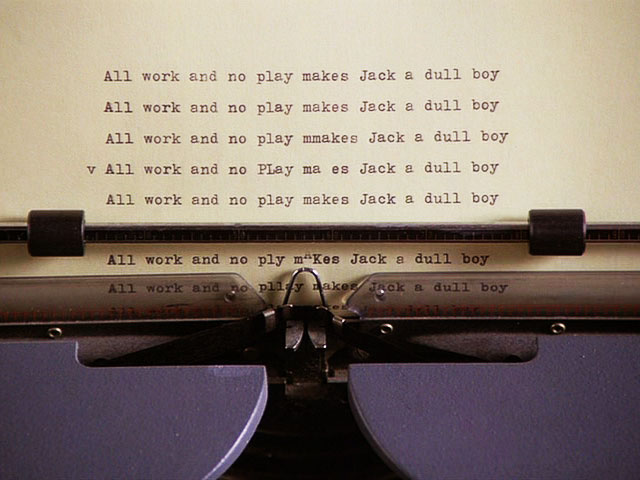
How Play Improves Our Lives
The Power of Play, Part III
In Stanley Kubrick’s “The Shining,” the simple phrase “All work and no play make Jack a dull boy” produces a bone-chilling moment of terror for the audience. Although the message behind those words is far less horrific in normal context, in truth the axiom speaks volumes.
Modern society equates productivity with meaning, attaches great value to outcome, and considers exhaustion a badge of honor. We say we crave work-life balance, but repeatedly tip the scales far too heavily on the work side as we pursue “playtimes that lead to social, personal or professional gains.” As working professionals, we’ve conditioned ourselves to believe that fun for fun’s sake is frivolous. Nothing, though, could be further from the truth.
“Play is the highest form of research.”
Albert Einstein
Increased competition and pressure to both dominate markets and boost profits are draining workplace morale, productivity and ambition. Anxiety, meanwhile, is at an all-time high. Many career-focused remedies, unfortunately, drive anxiety-reducing outcomes with the same rigor and pressure associated with work. Conversely, play effortlessly produces calming, long-lasting ease to professional angst without making that a goal. Here’s what you can expect professionally from spending more time in the sandbox:
PROFESSIONALLY
Manage Stress: Playful engagement is a great way to relieve stress. Having fun triggers endorphins, which promote well-being and can even relieve pain.
Banish Burn Out: Play focuses on process, not product. Plan regular play breaks either at, before or after work, to prevent you from reaching your breaking point and stave off burnout.
Pump Up Productivity: Light physical play increases energy and refreshes the body and mind. It also encourages teamwork, boosts trust,and fosters comradery.
Increase Innovation: Play can free up creative or mental blocks and help shed new light on challenges or obstacles. It’s a magic trigger for creative impulses and divergent thinking.
Fortify Connections: Sharing laughs and fun cultivates trust, empathy, compassion, and intimacy. Developing your playful side can help you break the ice and form new or deeper business relationships.
Enhance Teamwork: Play involves cooperation and coexistence, which can improve your team’s ability to work efficiently effectively, and freely while respecting boundaries.
Relate to and Read an Audience: Play reinforces socialization skills and boosts our ability to read body language, recognize emotion and understand nuanced non-verbal communication.
Lower Health Insurance Premiums: Play can actually increase energy levels, improve brain function, and ward off memory problems.
“We don’t stop playing because we grow old; we grow old because we stop playing.”
George Bernard Shaw
PERSONALLY
The good news is that the benefits above transfer outside the office. The better news is that adding more play to your life can add more value to your personal relationships.
Deepen Trust: Play is spontaneous and process-driven, so playful pastimes with friends or neighbors can help to more quickly and effectively build bonds.
Break Down Barriers: Adults put up walls easily but find it challenging to take them down. Play can help remove those bricks by enforcing give and take, listening, adherence to rules or guidelines and cooperation.
Heal Thyself: Play can help to heal social awkwardness or emotional insecurity. Quite simply it replaces negative beliefs and behaviors with positive interaction, non-competitive behaviors, humor and positive assumption.
Amp Up Attraction: In a Penn State study about desired qualities in a mate, both males and females articulated the importance of a sense of humor and being fun-loving. Develop your playful side and you may just find your Saturday night dance card filled to capacity!
Healthy Booster Shot: Studies have shown that improved vitality can actually enhance the body’s immune system. With healthcare costs skyrocketing, play is an investment certainly worth serious consideration.
The quality of work—not the time spent working—is the true measure of success. Similarly, a good quality of life is the foundation for overall happiness, well-being, and longevity. Going back to the playground to improve your work life and life’s work could help you lead a more contented, wholehearted—and fun—existence.
